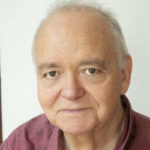Michael Pezzullo is by far the most powerful public servant in Australia. He created and runs the ever-expanding Home Affairs Department, he oversees a ceaseless avalanche of draconian new laws and he gives public speeches about what he sees as the global ‘‘duality of good and evil’’.
Home Affairs already includes ASIO, the Australian Federal Police, Border Force, the Criminal Intelligence Commission, Immigration and other bodies. New laws make it a criminal offence to cause ‘‘intangible’’ damage to Australia’s international relations, without explaining how anyone could know they were having an ‘‘intangible’’ effect. Another new criminal offence is to receive ‘‘inherently harmful information’’, regardless of whether it’s classified.
In a speech this month that sparked remarkably little alarm, Pezzullo said responding to the problems created by global forces required ‘‘nothing less than the transformation of the state itself and the state’s relationship with society’’. He wanted an ‘‘extended state’’ consisting of the ‘‘entire apparatus’’ of all Australian governments, the business sector, the scientific and industrial research establishment, not-for-profit and community organisations including charities, and households as required for security and other purposes. Pezzullo wanted a ‘‘closer integration of security, economic and social policy’’.
His October 13 speech then outlined more than 25 serious risks that might materialise over the coming century, including pandemics, climate change and many national security threats. ‘‘This is an apocalyptic list to be sure,’’ he said, adding arguable cases for other scenarios including ‘‘a humanity-killing synthetic virus, super volcanic eruptions which block the sun, the Terminator AI threat, a nuclear apocalypse and, yes, the killer asteroid’’.
In a speech last year, Pezzullo listed only seven threats, none being white supremacists. Two days later an Australian white supremacist killed 51 people in Christchurch. Oddly, his latest speech still did not mention white supremacists.
Pezzullo’s speeches often refer to his reading. In this case: ‘‘At one level, security dilemmas reduce logically to human difference and alterity, whether one reads Hobbes, Foucault, Schmitt or Heidegger, or for that matter Hegel, Marx, Nietzsche or Derrida, to name a few of the relevant thinkers.’’ Sartre and Kierkegaard crack a mention, too.
In a speech to the Trans-Tasman Business Circle in 2017, he said the 17th-century philosopher Thomas Hobbes had a central role in creating the model of the ‘‘protector state’’ that prevailed until undermined by globalisation. Hobbes famously argued that, unless people ceded all power to the state, their lives would be ‘‘solitary, poor, nasty, brutish and short’’.
Another 17th-century philosopher, John Locke, has been more important. Widely seen as the founder of modern liberalism, Locke had a strong influence on the US Declaration of Independence, including its insistence that governments should only derive their powers from the ‘‘consent of the governed’’. In stark contrast, Hobbes argued the state and monarch must be absolute.
Pezzullo told his Trans-Tasman business audience: ‘‘The state has to embed itself invisibly into global networks and supply chains and the virtual realm, in a seamless and largely invisible fashion, intervening on the basis of intelligence and risk settings, increasingly over a super scale and very high volumes.’’ A devout Catholic, he stresses everything this state does must be lawful and subject to scrutiny. Nevertheless, he gave a dismissive explanation of how this can be achieved when questioned by a parliamentary committee in 2018 about the lack of a warrant before government agencies notify tech companies they must give them access to encrypted cryptic data.
‘‘If we were to say to you that a notice is a warrant and through an incantation and a sprinkling of some magic dust on it, all of a sudden greater oversight is achieved …’’ Pezzullo explained the Attorney General would utter the incantation and sprinkle the magic dust.
One problem is that the Attorney General is a partisan government minister, not an independent judicial figure. Pezzullo seems comfortable with that.
Brian Toohey is author of Secret: The Making of Australia’s Security State.

Comments
6 responses to “Our ‘extended’ state’s most powerful mandarin (SMH Oct 30, 2020)”
Michael Pezullo with his views and actions would not be out of place as as Doctor Evil in a Mike Myers Austen Powers movie.
Pezzullo has obviously joined his ‘PAPA’ in the eternal war against the Devil.
If Pezzullo is reading all this philosophy, is he running a major (oops, mega) government department or is he dean of the Arts faculty at some new university he and his minister have created? If it is a new university, I’ll bet its funding is excellent. Somehow I can’t see the minister with the potato head studying humanities there with the ‘well-read’ Pezzullo.
Any devout Catholic ought to include in his reading something from the Middle Ages (Thomas Aquinas perhaps) and the Greeks (Socrates, Plato and Aristotle).
His excruciating diatribe on Christian values dodged and weaved and managed to ignore the 29th verse of Chapter 10 of Luke. But then he would wouldnt he? He is currently locking up the children of desperate strangers. A pontificating bloviator.
I basically see Pezullo as an Eichmann type criminal.
Every try-hard name-drop you can think of, except the one he needs to read – Machiavelli.